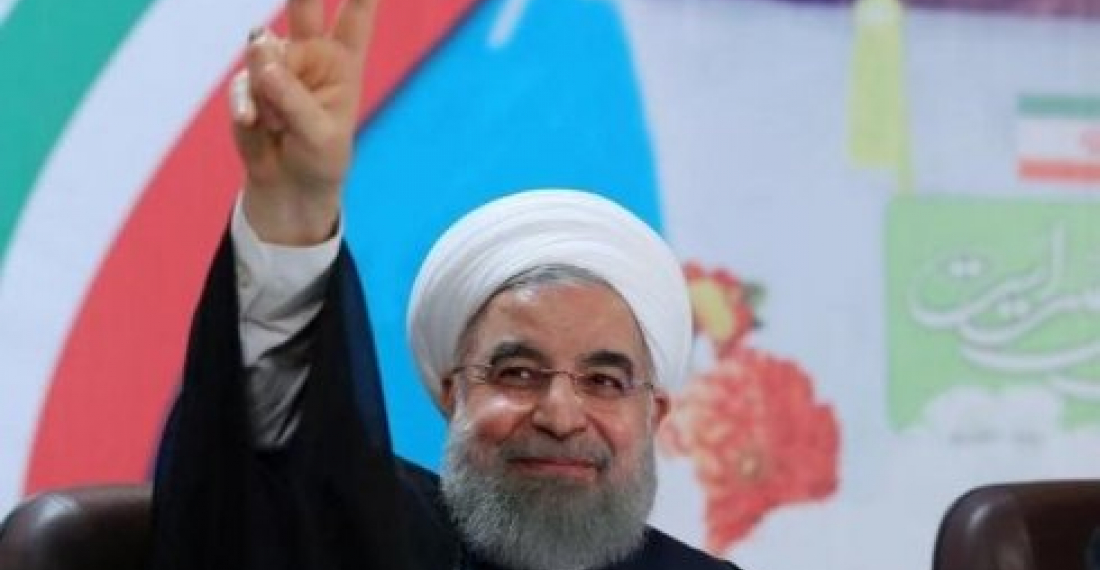Hassan Rouhani was re-elected president of Iran at elections held on Friday (19 May)after a month of heated campaigning.
Rouhani, seen as representing moderates and reformers, won 23.5 million (57%) of the total vote, while his closest rival, Ebrahim Raisi, received 15.7 million (38.5%), the Interior Ministry announced on Saturday.
The other presidential candidates, Mostafa Mirsalim and Mostafa Heshmitaba also collected 478,215 and 215,450 votes respectively while Vice President Es'haq Jahangiri and Tehran's Mayor Mohammad Bagher Ghalibaf dropped out of the race days before the election.
More than 70 percent of the country's 56 million eligible voters casted their ballots in what became a resounding victory for the self-described moderate president.
World leaders have been sending messages of congratulations to the Iranian President after his landslide victory. These included the Presidents of Russia and of China. The presidents of Armenia and of Azerbaijan were also among the first leaders to send messages to the Iranian President.
The election of Hassan Rouhani for a second term has also been positively received in European countries which over the last couple of years have been cautiously re-engaging with Tehran after the resolution of the nuclear dispute.
source: commonspace.eu
photo: President Hassan Rouhani of Iran (archive picture/Tehran Times)







